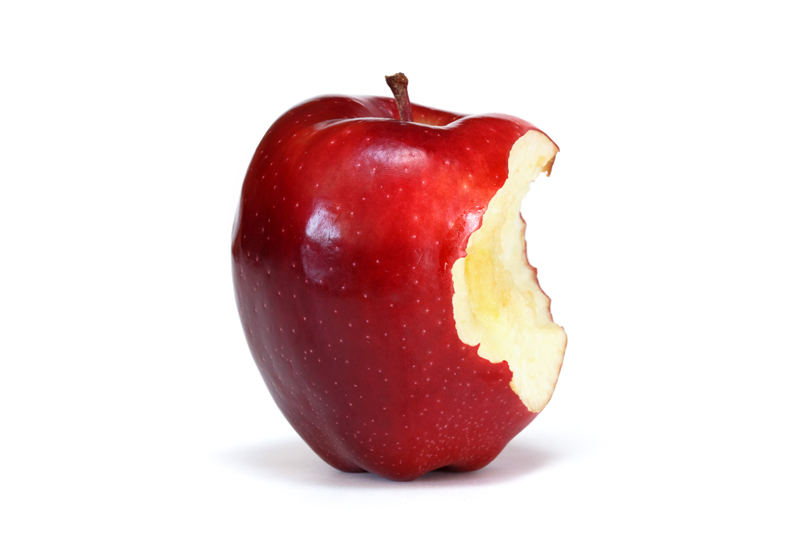Common Ailments Using Herb Remedies

Everyday common health problem and a list of herbs used help treat them.
The following list is not to replace the advice or care of your physician
Arthritis ~For relief from inflammation of the joints, swelling, and stiffness. Drink a decoction made from 2 teaspoons fresh ginger root. As an infusion use oregano, rosemary, and basil.
Bad Breath~For a mouthwash use a tincture or an infusion made with rosemary, sage, mint, lemon verbena, hyssop, anise seeds, or cilantro. Chew on fresh parsley or fennel seeds.
Bruises ~ Muscle Strains and Sprains~Apply a poultice of arnica or comfrey directly on the bruise. Use a compress of parsley or St. John’s wort for sprains. Rub a St John’s ointment into the bruised area.
Minor Burns~Use a home treatment only for minor burns or sunburn. Other burns may require medical attention. Break open an aloe leaf and apply directly to the burn. Or, apply lavender, or ointment made St. John’s wort, calendula, or elder flowers. Use a poultice or compress of angelica, or plantain leaves. Herbal vinegar from any of the above can also be very soothing.
Colds and Flu~At the very first sign of a cold or flu, drink a decoction of purple coneflower or ginger root and continue drinking until well. Make a broth with onions, raw garlic, ginger, or hot red pepper. You can also make an infusions use eyebright, fennel, or sage. Aniseed infusion acts as an expectorant.
Constipation ~To prevent constipation simply eat fruits several times a day while adding fiber to your diet. Make an infusion of basil, dandelion, or parsley.
Coughs~For an infusion use sage, thyme and gingerroot, then add lemon juice and honey. Other herbs include mullein, cowslip flowers, white horehound leaves. For a decoction, use marshmallow or elecampane root. For syrups use angelic root. For phlegm in the chests, you can make a syrup, made with licorice root, thyme and lungwort leaves, cowslip flowers, or aniseed. These are all natural mucous expellers or expectorants.
Minor Cuts and Abrasions~Make an infusion of calendula to wash wound. Use an ointment or compress of comfrey, calendula or St Johns wort. Make a tincture with rosemary, thyme, mint and wintergreen.
Fever~Make infusion of catnip, vervain, and boneset for hot, sweaty stage of fever. Make a decoction of gingerroot and cinnamon for chills. Use aspirin- like herbs (if not allergic to aspirin) such as meadowsweet or willow. These herbs are not for children.
Flatulance~There are a number or herbs that address this problem. They include anise, basil, caraway, chamomile, cilantro, fennel, ginger, garlic, hyssop, lemon balm, oregano, peppermint, sage, tarragon, and thyme. A soothing tea might be an infusion of chamomile flowers, fennel seeds, and lemon balm and peppermint leaves.
Headache~For migraines, use infusion of fresh feverfew leaves and fresh or dried by leaves. (Pregnant women should not use these herbs.) For general headaches make an infusion or decoction made for an herb with an aspirin-like quality such as willow bark, meadowsweet flowers, or wintergreen leaves. (These herbs are not for children or people who are allergic to aspirin). Some other infusions are lemon balm, peppermint, rosemary, sage, or thyme leaves and chamomile or lavender. Rub peppermint or lavender oil on temples.
Indigestion~Use infusions made from anise, caraway, coriander, angelica, lemon balm, mint leaves, or chamomile.
Insomnia~About 30 to 45 minutes before bedtime drink an infusion of lemon balm, wood betony, chamomile, catnip or hops. Or make a decoction of valerian root and drink cold.
Menstrual Cramps~Drink an infusion of raspberry leaves or a decoction of angelica roots or blackhaw bark.
Muscular Pains and Sprains~Apply bay, elecampane, horseradish, or wintergreen oil or ointment and massage lightly.
Nausea~Use an infusion of gingerroot, basil, cinnamon bark, peppermint, or lemon balm leaves.
Sore Throat~Gargle with an infusion or tincture made with sage, rosemary, marsh mallow, wintergreen, aniseed, ginger or garlic. Make syrup with honeysuckle flower.
This information is for informational purpose only and is not intended to replace the care or advice of a physician.
Herbs, Teas and Foods for Dis-Eases
Herbal Healing
The following list is not to replace the advice or care of your physician
Arthritis ~For relief from inflammation of the joints, swelling, and stiffness. Drink a decoction made from 2 teaspoons fresh ginger root. As an infusion use oregano, rosemary, and basil.
Bad Breath~For a mouthwash use a tincture or an infusion made with rosemary, sage, mint, lemon verbena, hyssop, anise seeds, or cilantro. Chew on fresh parsley or fennel seeds.
Bruises ~ Muscle Strains and Sprains~Apply a poultice of arnica or comfrey directly on the bruise. Use a compress of parsley or St. John’s wort for sprains. Rub a St John’s ointment into the bruised area.
Minor Burns~Use a home treatment only for minor burns or sunburn. Other burns may require medical attention. Break open an aloe leaf and apply directly to the burn. Or, apply lavender, or ointment made St. John’s wort, calendula, or elder flowers. Use a poultice or compress of angelica, or plantain leaves. Herbal vinegar from any of the above can also be very soothing.
Colds and Flu~At the very first sign of a cold or flu, drink a decoction of purple coneflower or ginger root and continue drinking until well. Make a broth with onions, raw garlic, ginger, or hot red pepper. You can also make an infusions use eyebright, fennel, or sage. Aniseed infusion acts as an expectorant.
Constipation ~To prevent constipation simply eat fruits several times a day while adding fiber to your diet. Make an infusion of basil, dandelion, or parsley.
Coughs~For an infusion use sage, thyme and gingerroot, then add lemon juice and honey. Other herbs include mullein, cowslip flowers, white horehound leaves. For a decoction, use marshmallow or elecampane root. For syrups use angelic root. For phlegm in the chests, you can make a syrup, made with licorice root, thyme and lungwort leaves, cowslip flowers, or aniseed. These are all natural mucous expellers or expectorants.
Minor Cuts and Abrasions~Make an infusion of calendula to wash wound. Use an ointment or compress of comfrey, calendula or St Johns wort. Make a tincture with rosemary, thyme, mint and wintergreen.
Fever~Make infusion of catnip, vervain, and boneset for hot, sweaty stage of fever. Make a decoction of gingerroot and cinnamon for chills. Use aspirin- like herbs (if not allergic to aspirin) such as meadowsweet or willow. These herbs are not for children.
Flatulance~There are a number or herbs that address this problem. They include anise, basil, caraway, chamomile, cilantro, fennel, ginger, garlic, hyssop, lemon balm, oregano, peppermint, sage, tarragon, and thyme. A soothing tea might be an infusion of chamomile flowers, fennel seeds, and lemon balm and peppermint leaves.
Headache~For migraines, use infusion of fresh feverfew leaves and fresh or dried by leaves. (Pregnant women should not use these herbs.) For general headaches make an infusion or decoction made for an herb with an aspirin-like quality such as willow bark, meadowsweet flowers, or wintergreen leaves. (These herbs are not for children or people who are allergic to aspirin). Some other infusions are lemon balm, peppermint, rosemary, sage, or thyme leaves and chamomile or lavender. Rub peppermint or lavender oil on temples.
Indigestion~Use infusions made from anise, caraway, coriander, angelica, lemon balm, mint leaves, or chamomile.
Insomnia~About 30 to 45 minutes before bedtime drink an infusion of lemon balm, wood betony, chamomile, catnip or hops. Or make a decoction of valerian root and drink cold.
Menstrual Cramps~Drink an infusion of raspberry leaves or a decoction of angelica roots or blackhaw bark.
Muscular Pains and Sprains~Apply bay, elecampane, horseradish, or wintergreen oil or ointment and massage lightly.
Nausea~Use an infusion of gingerroot, basil, cinnamon bark, peppermint, or lemon balm leaves.
Sore Throat~Gargle with an infusion or tincture made with sage, rosemary, marsh mallow, wintergreen, aniseed, ginger or garlic. Make syrup with honeysuckle flower.
This information is for informational purpose only and is not intended to replace the care or advice of a physician.
Herbs, Teas and Foods for Dis-Eases
Herbal Healing

Related Articles
Editor's Picks Articles
Top Ten Articles
Previous Features
Site Map
Content copyright © 2023 by Victoria Abreo. All rights reserved.
This content was written by Victoria Abreo. If you wish to use this content in any manner, you need written permission. Contact Victoria Abreo for details.



